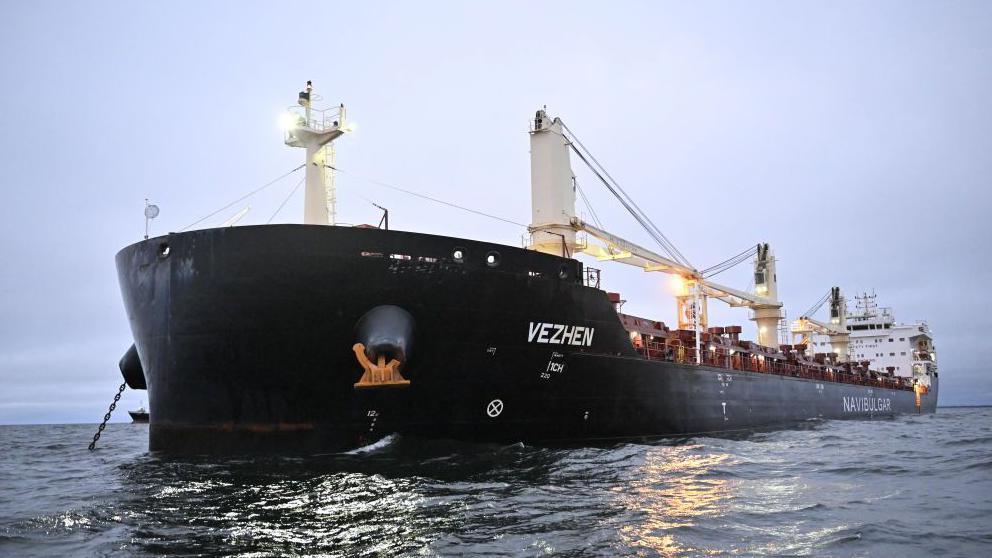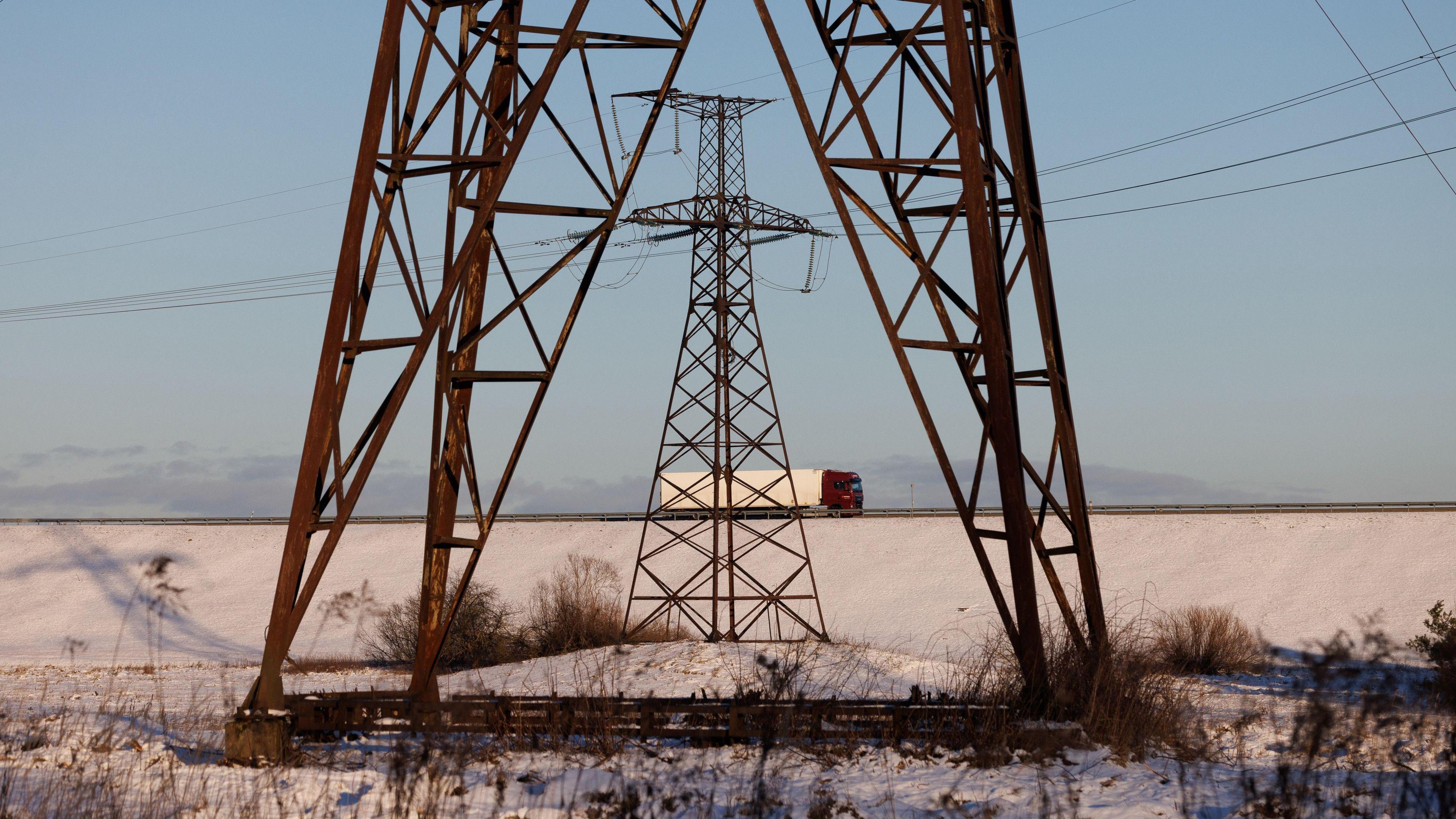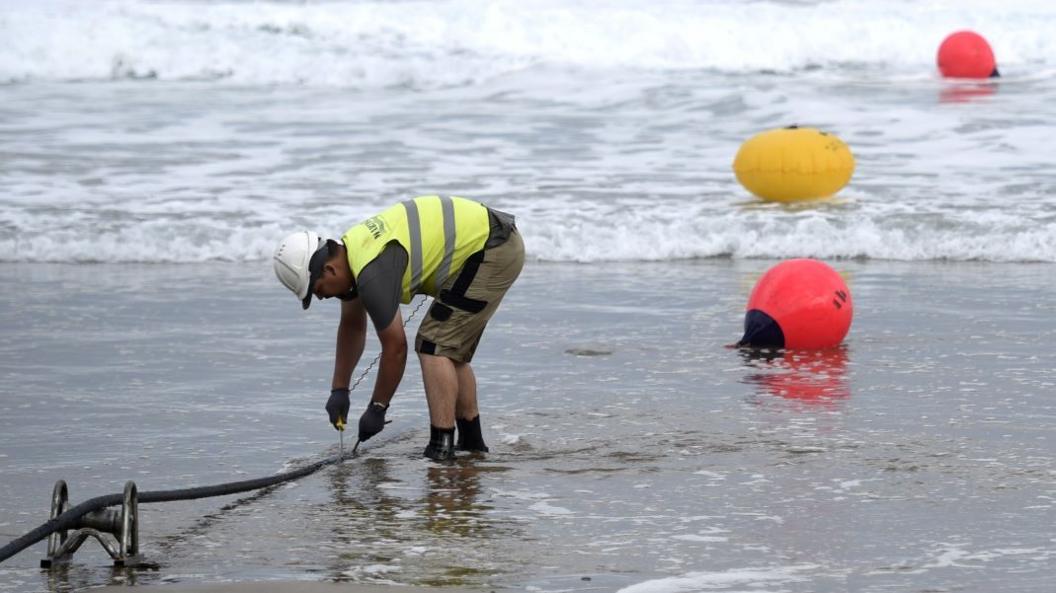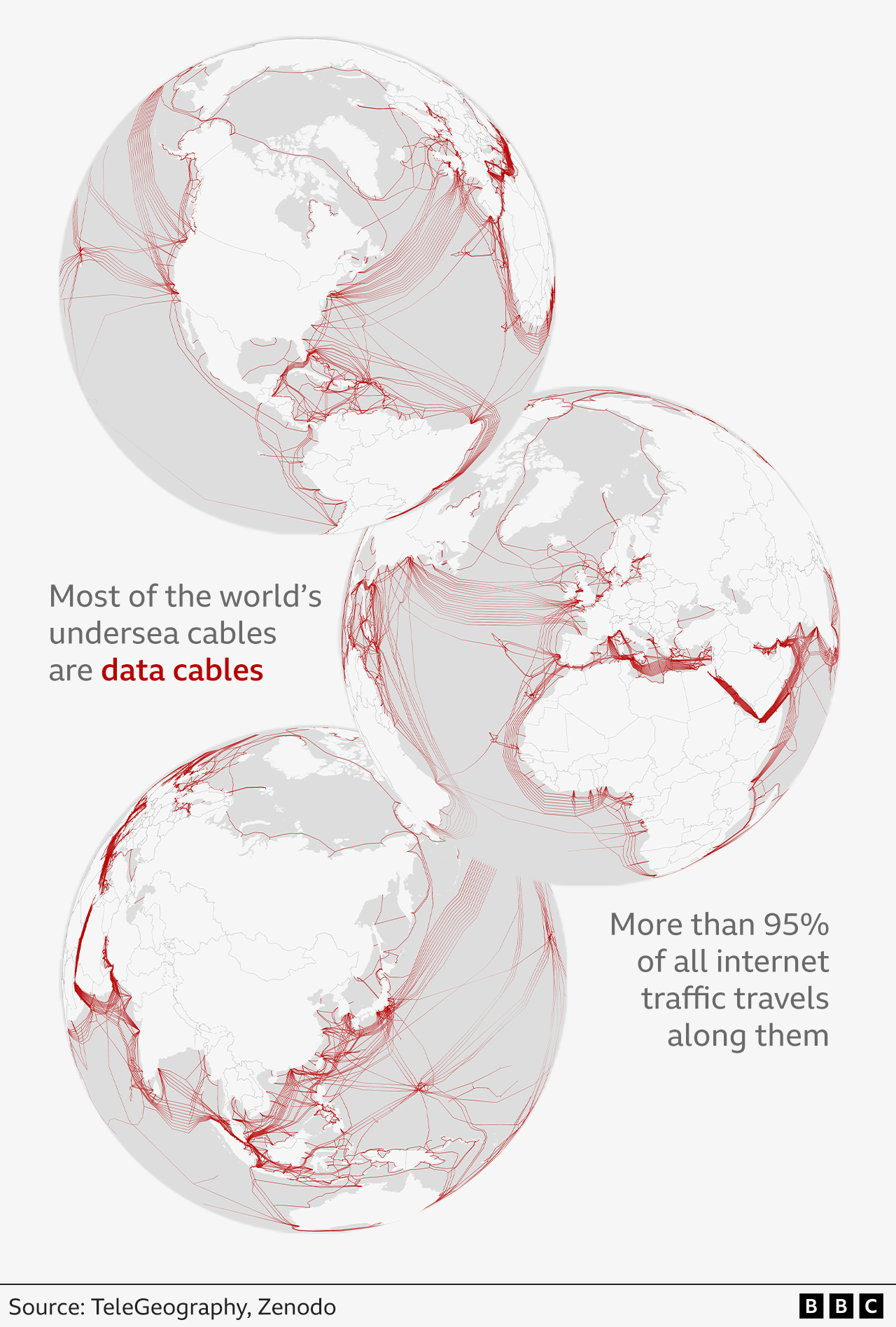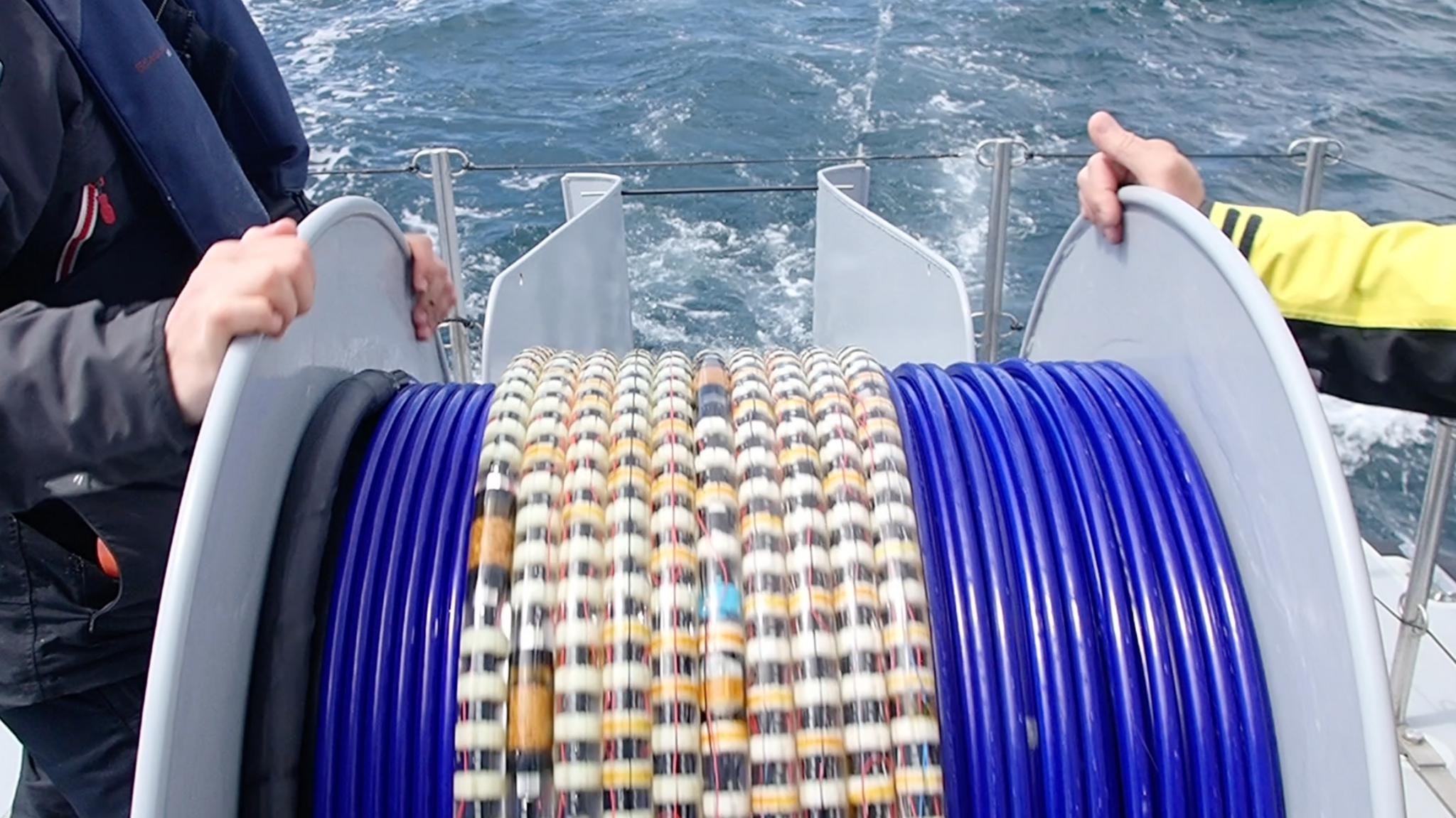Subsea fibre cables can 'listen out' for sabotage
Subsea cables are critical to the operation of the internet
The diver had found the fibre optic cable lying on the seabed of the North Sea. He swam closer, until it was near enough to touch.
He reached out his hand. But someone could tell he was lurking there. Someone was watching.
"He stops and just touches the cable lightly, you clearly see the signal," says Daniel Gerwig, global sales manager at AP Sensing, a German technology company. "The acoustic energy which travels through the fibre is basically disturbing our signal. We can measure this disturbance."
Multiple reports of damaged telecommunications cables in the Baltic Sea have raised alarm in recent months.
So important are these cables, which carry huge volumes of internet data between countries, that Nato has launched a mission called "Baltic Sentry", to patrol the Baltic Sea with aircraft, warships and drones.
The EU is also stepping up measures, external to monitor and protect cables.
Despite those efforts the authorities cannot be everywhere at once.
So, some companies are trying to monitor what's going on in the vicinity of any cable – by using fibre optic signals to listen out for surreptitious underwater drones, or hostile vessels dragging their anchors along the seabed.
It was during tests of AP Sensing's system last year – not a real attempt at sabotage – that the diver patted his hand on the subsea cable watched over by the firm.
The company also deployed ships, drones and divers with sea scooters to find out how accurately its software could pick out and identify the presence of these vehicles.
Optics11's fibre optic listening technology can be deployed on military submarines, Mr Heiden adds, and he says the firm is soon to begin testing a monitoring cable installed somewhere on the floor of the Baltic Sea.
Ms Burdette also notes that, even when a cable is severed, telecommunications networks typically have significant redundancy built into them, meaning that end users often don't notice much disruption to their service.
Still, the visible military response to cable breakages in the Baltic Sea is welcome, says Thorsten Benner, co-founder and director of the Global Public Policy Institute, a think tank: "It's good that Nato and the European Union have woken up."
And while cable sensing technology might be useful, its efficacy in terms of preventing damage rests on how quickly coastguard or military patrols could receive alerts about potential sabotage and react. "The question is how quickly you could establish contact with a vessel," Says Benner.
https://www.bbc.co.uk/news/articles/cn52rglxr62o

 (This is so that ships can avoid them when anchoring...)
(This is so that ships can avoid them when anchoring...)
